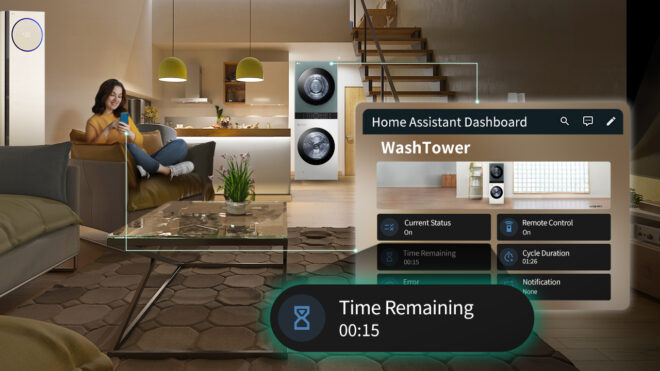LG, one of the technology giants based in South Korea, made a statement today and announced that it opened the ThinQ API to developers.
The official statement from LG on this subject was as follows: “LG Electronics has fully opened up the Application Programming Interface (API) of its smart home platform ThinQ, allowing developers to easily create smart spaces with LG devices. Recently, LG opened the LG Smart Solution API Developer website to officially open the ThinQ API.smartsolution.developer.lge.com) started. The API acts as a digital connector that allows different software to seamlessly switch functions. Developers can use the open API to integrate various features from LG AI devices into their programs or systems and enhance their services. ThinQ API is divided into two categories: ThinQ API for individual users and ThinQ Business API for enterprise partners. ThinQ API enables remote control of LG devices installed in homes or buildings and facilitates integration with various platforms.
YOU MAY BE INTERESTED IN
For individual users, ThinQ API supports controlling and monitoring AI devices registered in the LG ThinQ app from various smart home platforms. Using the ThinQ API, anyone can easily create a customized smart home that suits their lifestyle. For example, users of the global smart home platform Home Assistant can now connect and control 26 types of AI devices, including refrigerators and washing machines, into their existing smart home environments. Home Assistant is described as a community-based open platform with nearly one million users worldwide who collaboratively develop a variety of smart home functions such as device automation and feature expansion.
For enterprises, the ThinQ Business API supports partners operating office or residential buildings to integrate and manage a variety of products, from appliances to commercial equipment such as HVAC and signage, with their existing applications. For example, large residential buildings can integrate LG devices into existing management applications for more convenient use. Residents can reserve the use of LG washers and dryers in common areas through the building management app, or managers can use LG’s temperature and humidity sensors to detect abnormal conditions in the building and quickly respond to problems through alert functions.
Meanwhile, LG has accelerated the integration of external products and services into the LG ThinQ platform by acquiring smart home platform company Athom, known for its comprehensive IoT device connectivity. Homey, Athom’s smart home hub, currently connects more than 50,000 appliances and IoT devices, and the Athom app store has nearly 1,000 apps that connect and control products and services from global brands such as Philips and Aqara. “LG plans to integrate Athom’s comprehensive open ecosystem and IoT device connectivity into the AI home hub ThinQ On, aiming to realize an AI home where generative AI better understands customers and provides optimal space solutions.”
Kim Kun-woo, vice president of the company’s Industrial Goods Solutions Company, said:With the official launch of ThinQ AI, we aim to deepen engagement with smart home power users in the open source community and expand our collaboration with B2B partners. “This initiative will support our efforts to create smart home ecosystems powered by LG devices and enhance customer experiences across multiple touchpoints.” he said.
